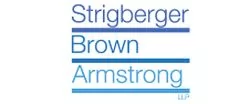In two recent decisions from FSCO, auto insurers are being reminded of their duties of confidentiality and the dangers of sharing information between the accident benefits and tort departments. First, the Arbitrator in Wang and TTC Insurance Company Limited, FSCO A16-001903, removed in-house counsel for the TTC from the file, suspended the arbitration hearing and required TTC to hire outside counsel to continue the proceedings.
Counsel from TTC's in-house department had hastily submitted materials in response to a late motion by the Applicant's counsel. Upon review of the affidavit submitted by the Insurer, the Arbitrator found that it was evident that any firewall erected between the accident benefits and tort departments had been breached. The Affidavit referred to a review of the file by the tort lawyer including references to medical witnesses and reports.
The Arbitrator referenced IBC General Bulletin #184, which addressed the issue of complaints the IBC was receiving regarding breaches of the firewall between accident benefits and tort departments. The Bulletin reminded members that the All Industry Claims Agreement prohibited insurers from gathering medical information from doctors or their employees, without the written consent of the patient. The Arbitrator held that for this rule to be effective, where the same insurer insures both the tortfeasor for liability coverage and the victim for accident benefits, the insurer should set up a 'Chinese Wall' so that information is not available between departments absent explicit permission. The Arbitrator recognized that it did not matter that the insurer would ultimately come into possession of much of what was contained in the AB file during the course of the tort proceedings; the insurer did not have an automatic right to that information.
The second decision, Vadivelu and State Farm Mutual Automobile Insurance Company, FSCO A11-002496, involved the Special Investigations Unit (SIU) for State Farm, on behalf of the accident benefits department, investigating the OCF-2 submitted by the insured. The SIU found that there was a fraudulent employers' signature on the OCF-2 form. Subsequently, the tort department started an investigation regarding the Applicant's employment in his role as a Plaintiff in his tort case. Once again, State Farm's SIU Department was engaged to investigate. In doing so, SIU obtained a statement from the employer that the Applicant had misrepresented his employment information. The outcome of both of these investigations appear to have been shared between departments. The Applicant took issue with this disclosure.
The Insurer argued that both departments conducted their own investigation into the validity of the employment of the Applicant and discovered that the information provided was fraudulent. In support of their position, the insurer relied on section 7(1)(b.1) of the Personal Information Protection and Electronics Documents Act (PIPEDA). This section allows for the collection of personal information without the knowledge or consent of the individual if the information collected is contained in a witness statement and the disclosure is necessary to assess, process or settle an insurance claim. In addition, the insurer relied on the signed OCF-1 authorization which states: "I am also aware that you and persons acting for you may be required or permitted by law to disclose this information to others without my knowledge or consent."
The Arbitrator held that it was beyond his jurisdiction to widen the scope of the firewall which has been endorsed by the Court. This firewall prevented the sharing of medical information only from the accident benefits department to the tort department. The Arbitrator held that section 7 of PIPEDA and properly executed OCF-1 and OCF-2 allows for information provided to the insurer to be verified by the insurers, at any time by any department and thus there was no breach in this instance.
Bottom-line, accident Benefits departments have a responsibility to their insured, to ensure that medical information gathered during the course of adjusting the AB claim is not to be accessed, shared or otherwise available to the tort department adjusting a claim for the same insured.
The content of this article is intended to provide a general guide to the subject matter. Specialist advice should be sought about your specific circumstances.

